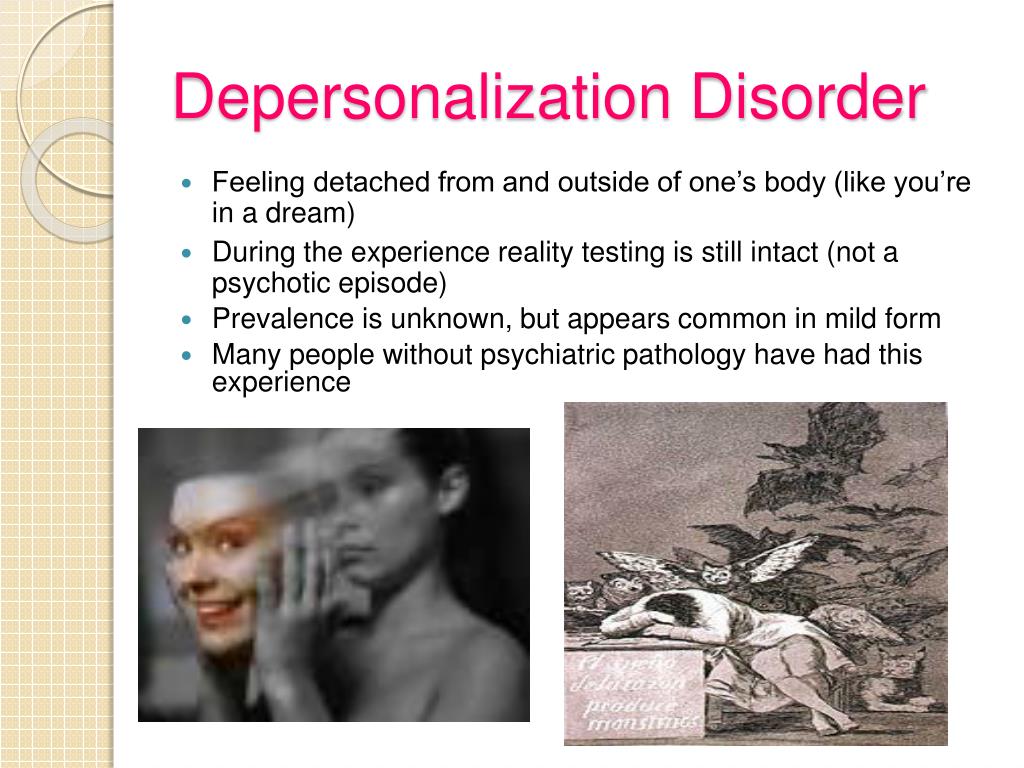

It is not uncommon to find these symptoms as an additional specifier for posttraumatic stress disorder (PTSD), panic disorder and Borderline personality disorders among clinical diagnoses. DPDR symptoms have been reported in conditions like substance intoxication (predominantly ketamine, LSD, and hallucinogens), aura of epilepsy, acute and transient psychotic disorders and ecstatic state of mania. As a component of normal defensive reaction, it is not uncommon to exhibit DPDR symptom in the form of forgetfulness, mind wandering, day dreaming etc. DPDR experiences can range from commonly seen perceptual amnesias to possible psychopathologies associated with horrified feeling of disconnectedness from self and environment. In simple words, Depersonalization means feeling of disconnected from self and derealization means feeling of disconnected from an immediate environment. DPDR experience are difficult to understand and interpret due to complexly interwoven sensory-motor experiences resulting from loss of normal integration of perception, identity, memory and various other faculties of consciousness.

Considering scanty literature on DPDR as a primary diagnosis, more studies are required to identify the actual prevalence and coding of DPDR in future.ĭepersonalization and derealization (DPDR) syndrome is often classified under Dissociative disorders. Reasons may include ignoring the comorbid DPDR coding, inability to articulate DPDR symptoms, inadequate documentation and misinterpretation of symptoms or actually less prevalence of DPDR syndrome in India. Isolated DPDR syndrome has been diagnosed very rarely in recent past. Selective serotonin reuptake inhibitors were used as primary medication for 65% of patients. Tactile imagery (50%), self-environmental integration (42%), and dream-reality integration (28%) were the major themes. Mean duration of DPDR syndrome was 6 years (standard deviation = 2.2) while mean age of presentation to hospital was 24 years (SD = 2.5). Results:įourteen patients received the diagnosis of DPDR.

Methods:Ī retrospective review of case files coded under ICD code F48.1 was carried out for 10 years and details were systematically analyzed for age, gender, duration, phenomenology, comorbid diagnosis, and pharmacological treatment. This study focuses frequency of coding the diagnosis of DPDR (ICD-10) and critical discussion about its clinical and research utility. There is sparse literature from India on DPDR symptoms, their clinical and research utility. Depersonalization and derealization (DPDR) syndrome results from complex interwoven sensory motor experiences seen across psychiatric disorders.


 0 kommentar(er)
0 kommentar(er)
